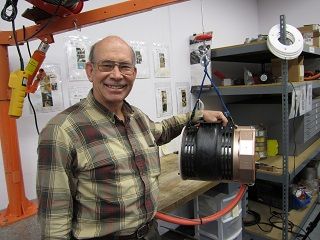Is Cold Fusion Real?

It’s funny you ask, as my belief has changed over the last few years. If you will read the short chapter on the subject in my first book (Renewable Energy – Facts and Fantasies) starting on page 171, you’ll see that my mentor on the subject, Wally Rippel (pictured), an extremely senior physicist, is (or at least was) a believer on the subject. Subsequently, however, he’s become far more skeptical. The problem I have with it is that there is no theory that explains how LENR could possibly work; the issue isn’t that there is insufficient energy potential, but that sustained reactions can happen at speeds much slower than 10^-22 seconds at temperatures much lower than hundreds of millions of degrees. As another high-ranking physicist told me, “It’s a subject better suited to séances than sciences.”









